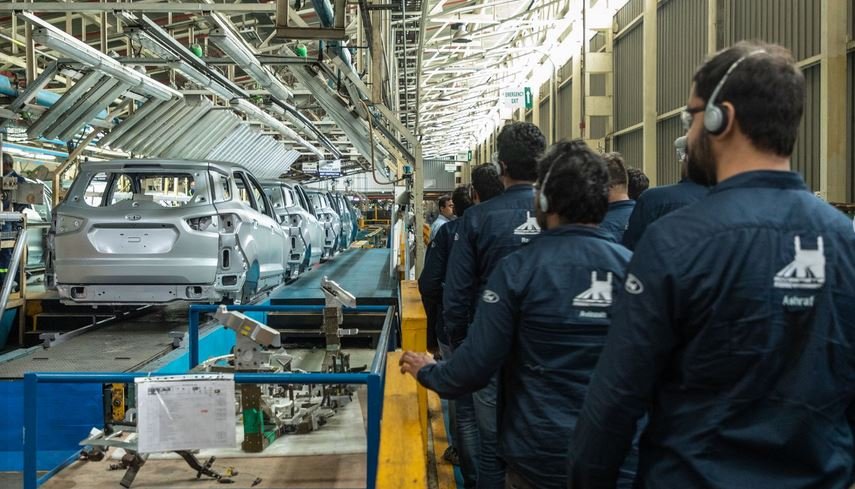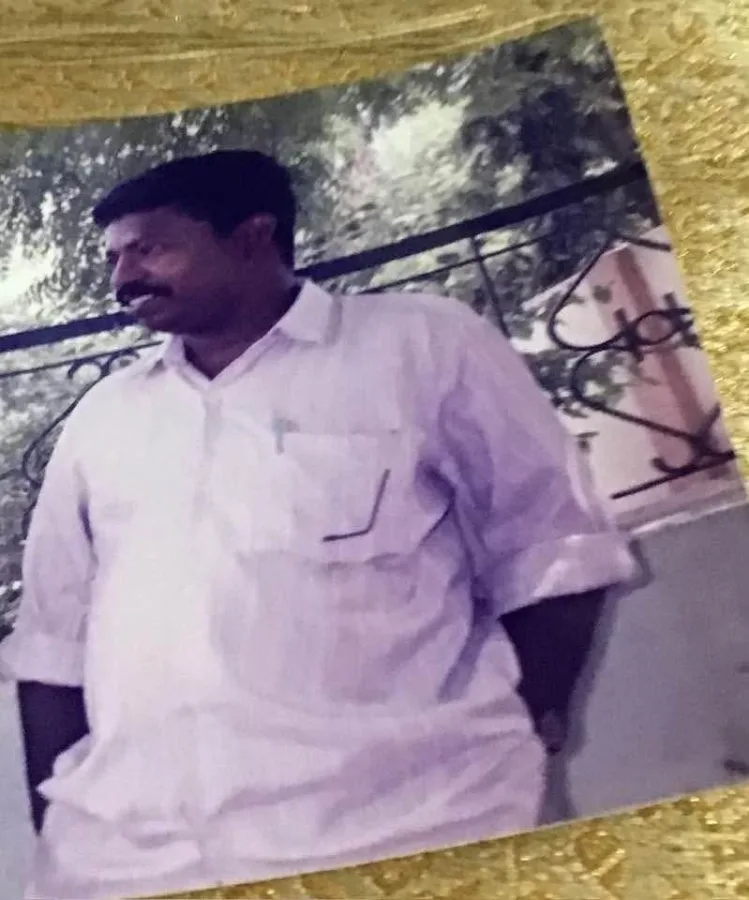Read in : தமிழ்
Tamil Nadu has been pitching for more investments in Electric Vehicle (EV) manufacturing especially after Ford India closed its plant on the outskirts of Chennai and exited the India market. In October last year, Industries Minister Thangam Thennarasu said that Tamil Nadu was lining up investments from various EV manufacturers.
A report in Business Standard at the time mentions major commitments that the state received, including from Ola Electric (Rs 2,354 crore), TVS Electric (Rs 1,000 crore), Ather Energy (Rs 635 crore), Srivaru Motors (Rs 1,000 crore), Ampere Vehicles (Rs 700 crore), and Simple Energy (Rs 350 crore). These were to do with the two-wheeler segment.
More recently—two weeks ago—Tesla CEO Elon Musk responded to a query on Twitter asking when Tesla would launch in India, saying he was “still working through a lot of challenges with the (Indian) government”. At the time, Telangana Industries Minister K T Rama Rao was quick to spot an opportunity and replied to him, making a pitch to set up in the state.
But, before that, in October last year, Tamil Nadu’s industries minister had been quoted as saying that the state’s “doors are wide open” for manufacturers like Tesla to set up their units. After Rama Rao tried to woo Musk, Thennarasu too jumped on the bandwagon, making a bigger case for choosing Tamil Nadu as Tesla’s manufacturing hub.
Why Chennai is the best bet for Tesla
He pointed out that Tamil Nadu was the Indian capital of EV manufacturing in particular—with a Rs 300 crore EV Park being readied in Tiruvallur near Chennai—and also the biggest automobile manufacturing hub in general. The advantage is that most of the car companies are located just 100 to 150 km from Chennai port, which makes it perfect for ease of export too.
Most of the car manufacturing companies are located just 100 to 150 km from Chennai port, which makes it perfect for ease of export too.
Apart from the electric two-wheeler makers Ola Electric, TVS Electric, Srivaru Motors, Ampere Vehicles, Ather Energy and Simple Energy, major automobile makers such as BMW, Hyundai, Nissan, Renault, Mitsubishi, Mahinda & Mahindra, Royal Enfield and Ashok Leyland have manufacturing plants around Chennai city.
India has had EVs for over 20 years
While it may take a while for Tesla to launch in India, EVs are not new here.
Remember Reva? The EV that grabbed the eyeballs of curious onlookers in Chennai traffic in the early 2000s? The cute, compact car with minimal legroom and boot space was the first of the EVs to be launched in India. The Bengaluru-based Reva Electric Car Company (RECC) sold ‘REVAi’ cars from 2001 in India, and under the name ‘G-Wiz i’ from 2003 in the UK.
The REVAi which featured old-generation lead-acid batteries, thereafter entered the markets of 26 countries through export. In 2009, the company progressed to the modern lithium-ion batteries with the ‘REVA L-ion’.
RECC, however, soon saw a fall and was taken over by Mahindra & Mahindra under the brand ‘Mahindra Electric Mobility Limited’. The Mahindra e2o with four doors was an upgraded REVA L-ion. It had good torque to help climb steep roads more easily. Unfortunately, the sales of the car which began in 2013 managed to survive only till 2017.
The e2o Plus was a more comfortable upgrade to the e2o which came out in 2016 and went on to be manufactured until 2019. Mahindra also later launched the e-Verito, attractive for its ability to go 140 kilometers on a single charge, and a fast-charging capability of 1 hour, 30 minutes to full charge.
Although Mahindra announced that it was stopping the manufacture of its two EVs, the vehicles are still listed on the Mahindra Electric website. However, it isn’t clear if they are still available for sale.
A recent surge in electric vehicles
Lately, another home-grown company has taken an interest in EVs. Tata Motors in recent years brought out the Tigor EV and Nexon EV variants, with its main competition being the Hyundai Kona.
The two Tata EV flagship models’ battery packs and motors are even rated ‘Waterproof IP67’ like most phones these days, which makes them ideal for drives on even rainy days.
Apart from the EV makers Ola Electric, TVS Electric, Srivaru Motors, Ampere Vehicles, Ather Energy and Simple Energy, major automobile makers such as BMW, Hyundai, Nissan, Renault, Mitsubishi, Mahinda & Mahindra, Royal Enfield and Ashok Leyland have manufacturing plants around Chennai city.
The battery packs in these EVs are also water-cooled, thereby maintaining higher efficiency and longer battery life. The range that these EVs claim to have is about 306 kilometers, with a fast-charge feature that can get them from 10% to 80% battery charge within an hour.
More charging points, more juice
With a network of charging points across the country, a cross country tour on the Tata EVs might just be possible.
About eight official Tata charging stations exist in North and South Chennai itself. A Tata EV owner in North Chennai could easily visit the south of the city and get back without even having to stop for a charge.
However, for a drive to Bengaluru, the vehicle would need to make at least one stop midway to recharge. The EV could be fully charged at the owner’s home in Chennai and make the next stop for charging at either Vellore or Krishnagiri, before reaching Bengaluru.
In the days to come, the network of charging stations is bound to improve considering the fact that the future belongs to electric mobility. On the same note, Tata has also hinted at newer EVs to be launched in the coming years, including an electric revival of the classic ‘Sierra’ model.
‘First Indian car maker’ bids to outdo Tesla
Another noteworthy mention for the future of EVs is an indigenous company aiding the revival of a long-lost Kerala-based car manufacturer. Aravind Automobiles was established in Trivandrum in 1956. The company, which claims to have designed, built, assembled and prototyped the first Indian car, has planned five fully electric, future-ready vehicles.
Their ‘Marque K’ will be the flag bearing model that is already under development. The Instagram handle @aravindautomobiles running #TheFirstIndianCar campaign has released teasers of all their cars and they look quite Tesla-esque.
Aravind Automobiles is talking about a highly optimistic range of 1,000 kilometers per charge for its cars expected to be launched in 2028. Like Tesla, they have also laid emphasis on power, comfort, luxury, range and reliability.
Mahindra picks up Italian speedster creds to go up against Tesla
Several top car manufacturers have also begun paying heed to EV technology. Aston Martin, Audi, BMW, Hyundai, Honda, Mercedes-Benz, Nissan, Range Rover, Porsche and Ferrari are spending millions of dollars to develop EVs. Sportscar manufacturers now seem like they are on the verge of giving the Tesla Roadster, a run for its money.
But Tesla has competition not just from foreign manufactures. Good ol’ Indian company Mahindra Group has gone on to develop a fully electric hypercar after acquiring legendary Italian car manufacturer Automobili Pininfarina.
The Pininfarina Battista is a hypercar that can accelerate from 0-100 kmph in under 2 seconds and 0-300 kmph in just 12 seconds. It also boasts of a top speed of 349 kmph. The estimated range is about 500 kilometers on a single charge and the hypercar can be recharged from 20-80% state-of-charge in less than 25 minutes. Sounds like a real whizz, doesn’t it?
Teslas and their competition are better performers than cars with internal combustion engines, and therefore it seems like fully electric cars are the future.
Several technologies that involve automation, precision and artificial intelligence among others will be incorporated into these silent machines to make them more autonomous. If you’ve watched the video of a Tesla car driver taking a nap while the car is driving by itself, be assured that such a sight would be impossible across India, let alone Chennai.
But could we still hope for a Tesla manufacturing plant on Chennai’s outskirts perhaps?
Read in : தமிழ்











